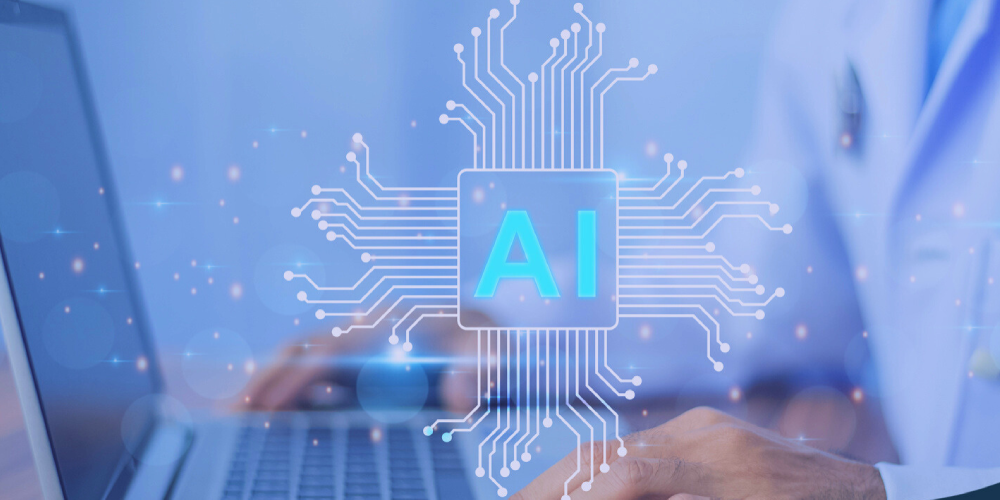High-Performance Computing For AI

Image reference: / source
High-Performance Computing for AI: Revolutionizing Public Cloud and Healthcare
In recent years, artificial intelligence (AI) has evolved from a futuristic concept into an integral part of various industries, driving innovation and enhancing efficiencies. Central to AI’s success is high-performance computing (HPC), which provides the computational power necessary to train complex models and process vast amounts of data. In this blog, we’ll explore how HPC powers AI, its use in public clouds like AWS, and its transformative impact on industries such as healthcare.
The Need for High-Performance Computing in AI
AI, particularly deep learning, relies on processing massive datasets and training complex neural networks. This process is computationally intensive, requiring substantial processing power, memory, and storage. HPC addresses these demands by combining multiple processors and nodes into clusters that work in parallel, drastically reducing the time required to perform large-scale computations.
For AI tasks, HPC enables:
- Faster Model Training: Accelerating the training process for machine learning models, allowing researchers and developers to iterate quickly and improve model accuracy.
- Real-Time Data Processing: Handling real-time data streams for applications like autonomous vehicles, real-time fraud detection, and predictive maintenance.
- Complex Simulations: Running intricate simulations for industries such as pharmaceuticals, where AI models can simulate molecular interactions to discover new drugs.
HPC and AI in Public Cloud: The Role of AWS
Public cloud platforms like Amazon Web Services (AWS) have democratized access to HPC for AI by offering scalable, on-demand infrastructure that organizations can leverage without the need to invest in expensive on-premises hardware.
AWS provides a suite of services tailored for AI workloads:
- Amazon EC2 Instances: AWS offers specialized EC2 instances equipped with powerful GPUs (such as NVIDIA V100 and A100) that are optimized for deep learning and HPC tasks. These instances can be scaled up or down based on application needs.
- AWS Lambda and SageMaker: For developers and data scientists, AWS offers tools such as Lambda for serverless computing and SageMaker for building, training, and deploying machine learning models at scale.
- Elastic Kubernetes Service (EKS): For organizations adopting containerized AI workloads, EKS simplifies the deployment of Kubernetes clusters that manage AI models, ensuring efficient resource allocation and scalability.
- AWS Batch: For batch processing of large-scale data, AWS Batch provides fully managed services capable of running thousands of jobs simultaneously, making it ideal for AI training jobs that require substantial compute resources.
By using AWS, businesses can avoid the high capital expenditure associated with on-premises HPC infrastructure while gaining the flexibility to scale resources up or down based on demand.
The Impact of High-Performance Computing on Public Cloud and Healthcare
The convergence of HPC, AI, and the public cloud is particularly transformative in healthcare, where data-driven insights can save lives and improve patient outcomes.
- Accelerating Drug Discovery: HPC enables AI models to analyze vast datasets of chemical compounds, predict their interactions, and identify potential new drugs more quickly than traditional methods, expediting the drug discovery process and bringing new treatments to market faster.
- Personalized Medicine: AI powered by HPC can analyze genetic data to provide personalized treatment plans tailored to an individual’s genetic makeup. Public cloud platforms provide the computational resources needed to process and analyze this data at scale.
- Medical Imaging: HPC in the cloud allows AI models to process and interpret medical images quickly, aiding in the early detection of diseases like cancer. Cloud platforms enable healthcare providers to deploy these AI models globally, ensuring consistent and accurate diagnoses regardless of location.
- Telemedicine and Remote Monitoring: With the rise of telemedicine, AI-driven remote monitoring systems can analyze real-time patient data to predict potential health issues before they become critical. HPC in the cloud ensures that these systems can scale to handle data from millions of patients simultaneously.
- Operational Efficiency: Beyond direct patient care, AI and HPC improve healthcare operations by optimizing scheduling, supply chain management, and resource allocation, ultimately reducing costs and improving service delivery.
Conclusion:
High-performance computing is the backbone of AI, providing the raw computational power needed to process vast amounts of data and train complex models. With the advent of public cloud platforms like AWS, organizations can now access this power on-demand, enabling rapid innovation and scaling in industries like healthcare.
As AI continues to evolve, the synergy between HPC, public cloud, and AI will unlock new possibilities, driving transformative changes in how we diagnose, treat, and manage health worldwide.
If you have any questions or would like to discuss High-Performance Computing for AI further, please get in touch at info@zifornd.com.





